Covid inquiry: Government plans legal action over messages
- Published
- comments
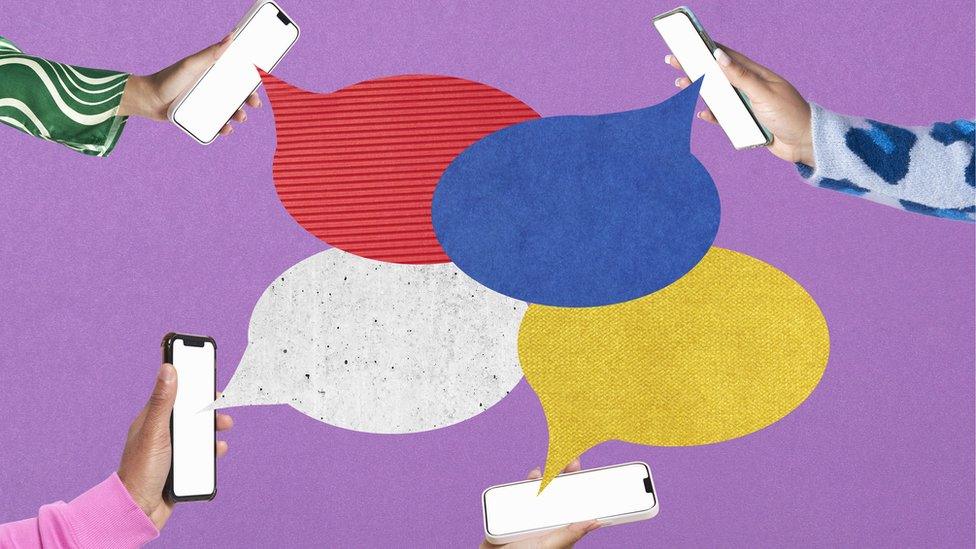
The government is planning to take legal action against the Covid Inquiry to try to block the release of former Prime Minister Boris Johnson's unedited messages and diaries
The request for the messages is part of an ongoing investigation looking at how leaders handled the UK's response to the pandemic.
The Cabinet Office's decision to not hand them over, and to use the law to try to stop them being handed over, is thought to be the first time a government has taken legal action against its own public inquiry.
Former Prime Minister Boris Johnson has said he is "perfectly content" for the inquiry to see his messages.
Other political parties have criticised the government for not going along with the inquiry's requests.
What is the Covid inquiry?
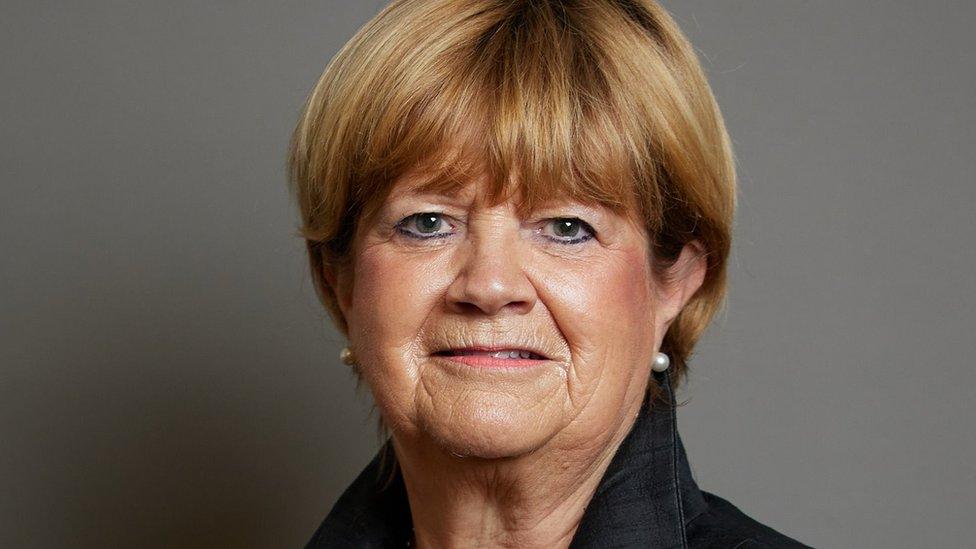
Baroness Heather Hallett is in charge of the inquiry
The UK Covid-19 Inquiry is an independent group of legal experts that has been set up by the government to look at the UK's response to the Covid-19 pandemic.
Its aim is to look at the impact of these responses, so that people can learn lessons for the future.
Baroness Heather Hallett, a former Judge, is in charge of the inquiry, and she is responsible for making decisions, listening to evidence, and sharing her findings and recommendations.
The inquiry has been set up under the Inquiries Act (2005). This means that Baroness Hallett will have the power to demand documents or messages and ask people to give information on oath - which means they legally must tell the truth.
The government's refusal to provide the messages, comes just weeks before the inquiry is due to hold its first public hearings to share what it has learnt so far.
What has the government said?
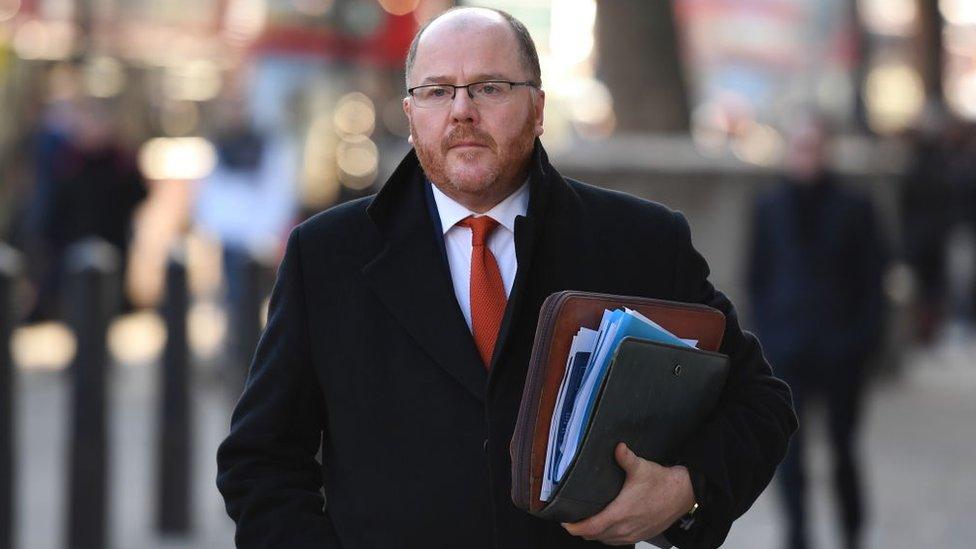
Science minister George Freeman thinks the minister's privacy is important
On Thursday, the government did not hand over a group of messages sent between former Prime Minister Boris Johnson and 40 other ministers and officials during the pandemic, at the time they were supposed to.
The Cabinet Office - which is a special group of the most senior members of the government chosen by the prime minister - said that many of the messages are not relevant - which means not connected to the things being talked about - and that to hand them over would be an invasion of the ministers' privacy.
Baroness Hallett - who is in charge of the inquiry - said it is up to her to decide what is relevant.
Science minister George Freeman said: "people's privacy is really important" and that the question of how private messages should be handled was a "point worth testing".
"I would like to see a situation where the inquiry says, 'Listen, we will wholly respect the privacy of anything that's not related to Covid. We will redact it'," he said.
Redact means to take out, or cover something, to make it hidden.
The government is now seeking legal action so that they don't have to send all the messages over to the inquiry.
What has Boris Johnson said?
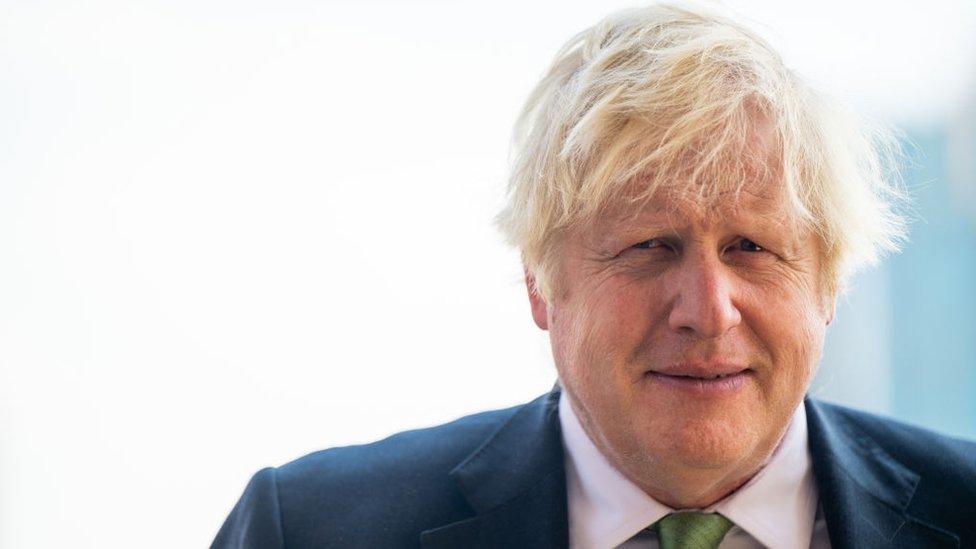
Former Prime Minister Boris Johnson is 'more than happy' to help the inquiry
Former Prime Minister Boris Johnson said in a letter to Baroness Hallett that he is "more than happy" to give his messages to the inquiry without having any bits redacted.
His decision is in contrast with the government's, he says he understood why the government was taking legal action, but said that this was not his decision.
Mr Johnson has not handed over any of his messages from before April 2021.
This means messages from the first year of the pandemic have not been included.
His spokesman said it is because his phone was involved in a security breach and has not been turned on since.
Mr Johnson has written to the Cabinet Office to ask whether support can be given so that the messages from that phone can be looked at without a risk to security, the spokesman added.
What have the other parties said?
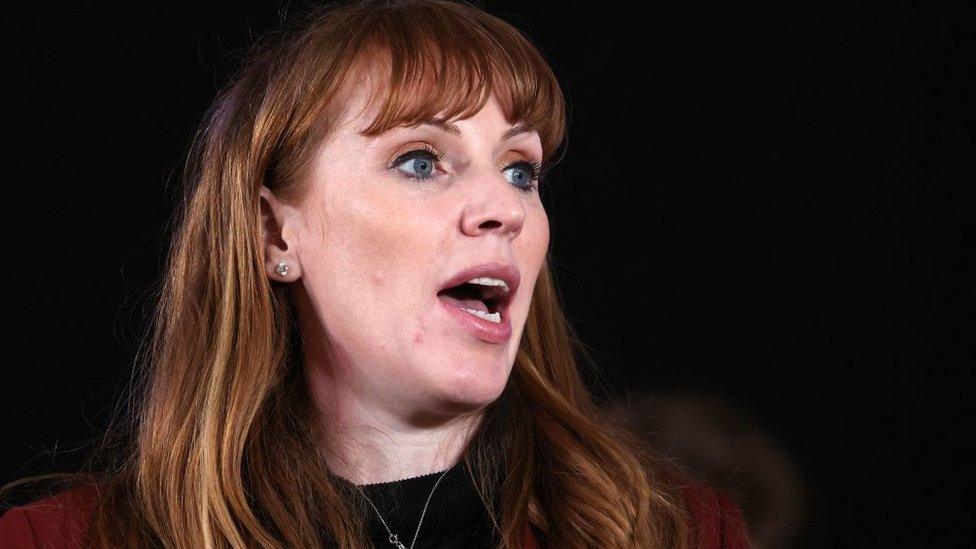
Labour's deputy leader Angela Rayner has spoken out about the government's decision to bring legal action against the inquiry
Labour's deputy leader, Angela Rayner, said the cabinet office's legal challenge was a "desperate attempt to withhold evidence" that would serve "only to undermine the Covid Inquiry".
The Liberal Democrats said it was a "kick in the teeth" for families who knew people who died during the pandemic "who've already waited far too long for answers".
